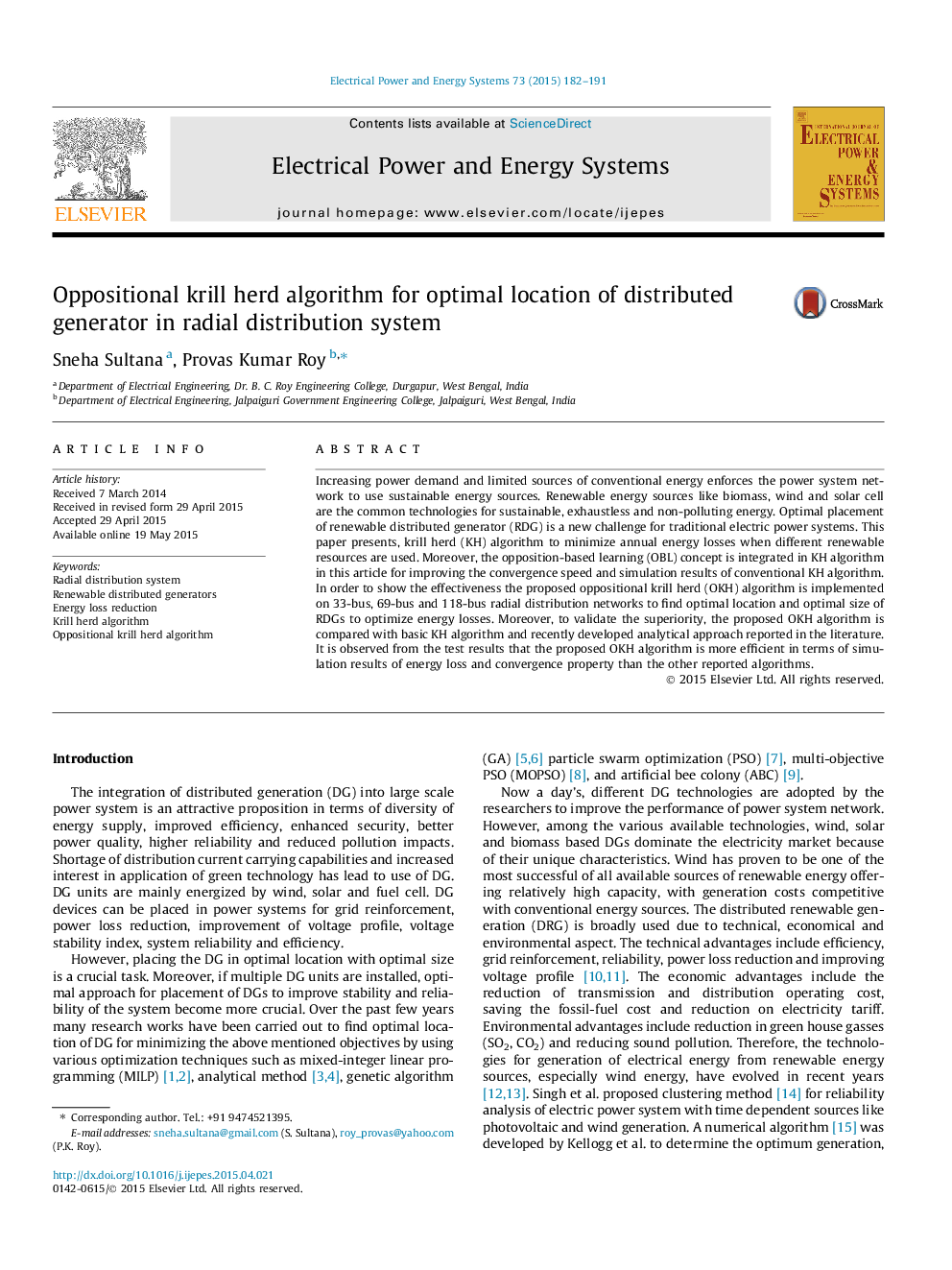| Article ID | Journal | Published Year | Pages | File Type |
|---|---|---|---|---|
| 399221 | International Journal of Electrical Power & Energy Systems | 2015 | 10 Pages |
•This paper presents KH algorithm to solve renewable DG allocation problem.•OBL strategy in integrated with KH algorithm to improve solution quality.•Three renewable sources, namely biomass, wind and solar energy are used.•OKH algorithm is implemented on small, medium and large radial system.•Proposed OKH method outperforms other approaches.
Increasing power demand and limited sources of conventional energy enforces the power system network to use sustainable energy sources. Renewable energy sources like biomass, wind and solar cell are the common technologies for sustainable, exhaustless and non-polluting energy. Optimal placement of renewable distributed generator (RDG) is a new challenge for traditional electric power systems. This paper presents, krill herd (KH) algorithm to minimize annual energy losses when different renewable resources are used. Moreover, the opposition-based learning (OBL) concept is integrated in KH algorithm in this article for improving the convergence speed and simulation results of conventional KH algorithm. In order to show the effectiveness the proposed oppositional krill herd (OKH) algorithm is implemented on 33-bus, 69-bus and 118-bus radial distribution networks to find optimal location and optimal size of RDGs to optimize energy losses. Moreover, to validate the superiority, the proposed OKH algorithm is compared with basic KH algorithm and recently developed analytical approach reported in the literature. It is observed from the test results that the proposed OKH algorithm is more efficient in terms of simulation results of energy loss and convergence property than the other reported algorithms.
